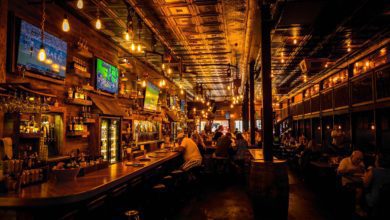Number of late-night hospitality venues falls by 2.8% in 2024
Nightclubs have borne the brunt of these closures, with numbers having dropped 33.2% following the impact of Covid lockdowns

Britain’s late-night hospitality sector had a total of 2,264 nightclubs, late-night bars and casinos at the end of 2024, spelling a reduction of 2.8% in a year and 25.2% less than pre-pandemic, according to CGA by NIQ’s first edition of the Night Time Economy Market Monitor.











